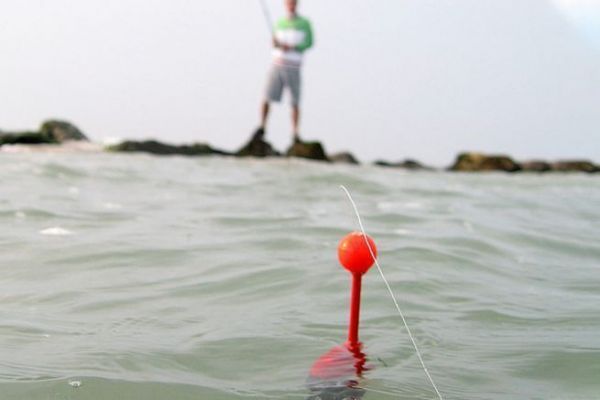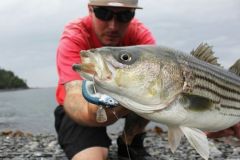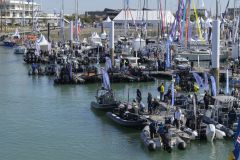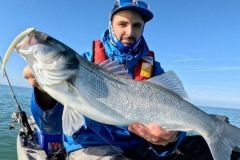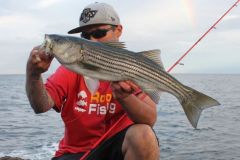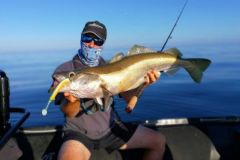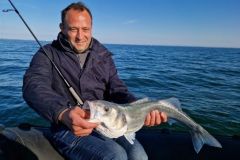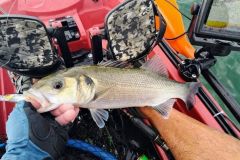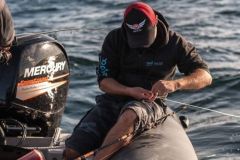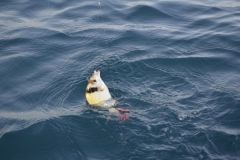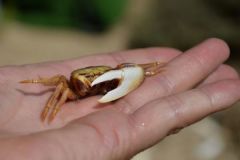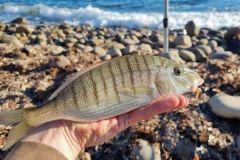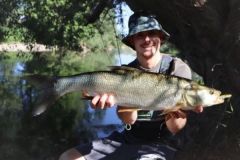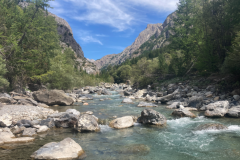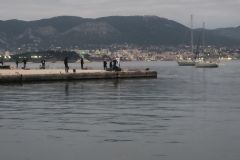Riprap, rock points, rocky plateaus
Fishing with corks allows you to prospect unexploited spots. On riprap areas dotted with rock heads, bass regularly hunt for forage fish, and only surface or shallow-diving lure anglers dare to stalk these hunters. On these fishing spots, it is sometimes necessary to use a strong nylon leader, as with lures, to avoid breaking on a beautiful fish trying to take refuge in the riprap. Bites are more regular in the current.
In most of the areas I fish with a float, I particularly like the beginning of the rising current, generally low tide + 2h to low tide + 3h, after which the bites become more irregular. Logically, this is the time when pools, rocks or bait-filled seaweed cover up. Crabs, shrimps, gobies and other baits in the center of the tidal zone are naturally the most effective baits at this time of tide. Bass are on the lookout for these shallow rocky areas and eagerly await this precise moment, when they seek out these baits in very little water. I've caught some nice fish between 1 and 2 meters deep. If there are waves slapping against the rocks, a long-handled landing net will be essential to finish off a fight with a fish weighing over 2 kg.
Dikes and jetties
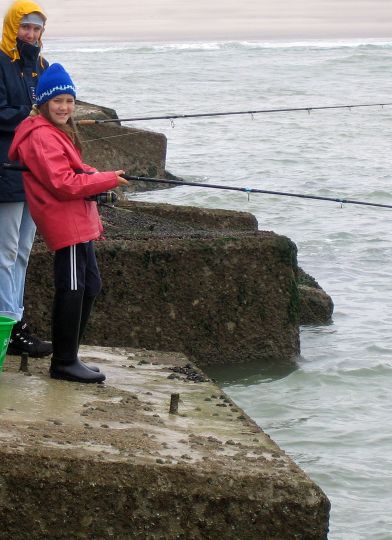
Dikes and artificial overhangs are great fishing grounds. At low tide, you can catch fish right at your feet on the riprap of jetties or on dyke protection blocks! At the end of the season, big sea bass feed on cuttlefish and squid. These baits can be used to catch nice-sized bass, but you need to use a float big enough for these heavy baits. Deep-sea fishing can be carried out on dykes by adjusting the float height to 3 or 4 metres. In the latter case, don't forget a "carrelet" (balance or square) to reel in any large bass!
Port areas
Harbour areas are very popular with Mediterranean anglers. My favorite baits in these areas are livebaits. A small old lady, a pout, a small sar, a small sea bream or an aiguillette... baited on a n░2/0 fine iron hook, you can hook very big fish in harbours.
My best memories of fishing in the Mediterranean are of night fishing with lighted floats. The advantage of these positions is that they can be fished in all weathers and tides. During the day, the noise, clear water and boats going in and out make predators wary. At night, the biggest wolffish are best caught in the harbour basins, between November and February (beware of the January to March breeding period).
Beaches
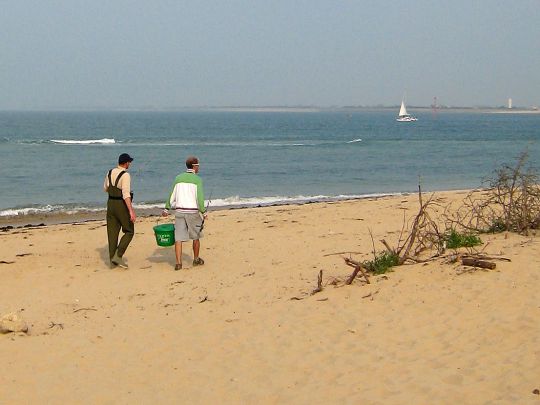
With a little experience, it's possible to fish beaches with a float. You won't reach the distances obtained with surfcasting, so it's important to move forward in the water to cast the line. Use either waders if the sea is calm, or a lycra wetsuit if the area is dangerous (currents, waves).
Shrimps, prawns, razor clams, sand eels and sand eels are the best bait on the beach. They are often trapped in the current around bÔches (north) or ba´nes (south-west and Mediterranean). Effective baits are those that bass find naturally in the fishing area. Always take an interest in the ba´nes, i.e. the holes observed at low tide, as this is where you'll find the most information on the baits present.
Oyster beds
Fans of lure fishing in oyster beds and mussel beds will not be lost. With the same equipment, on the same spots, at the same times and with the same tidal coefficients, they can look for sea bass on floats, with shrimps, prawns or crabs. Avoid casting the line too far. The principle is to get as far into the water as possible using waders, which have the dual role of protecting against injuries to oysters and mussels and withstanding the cold. All that's left is to make a wide cast, into the row in front of you, a few metres away (20-30m maximum). Avoid casting on a trajectory where there are obstacles, for example across the rows or towards a concrete reinforcing bar.
As with lures, it's essential to restrain the fish with the rod high! Remember to set your drag before casting. Especially on oyster beds, it's best to be cautious and use a 50/100 leader minimum, or even more if it doesn't interfere with the fish you're after (if the water isn't very clear or if you're fishing at daybreak).

 /
/ 